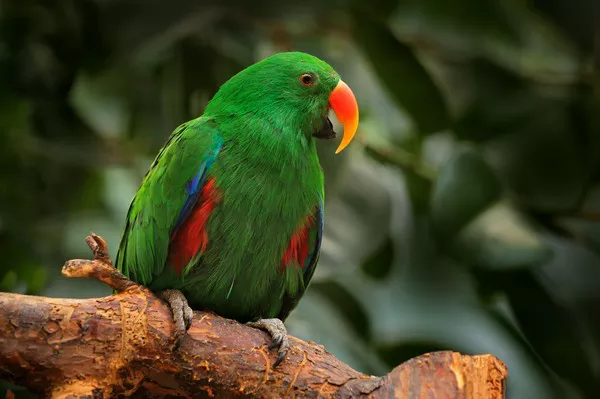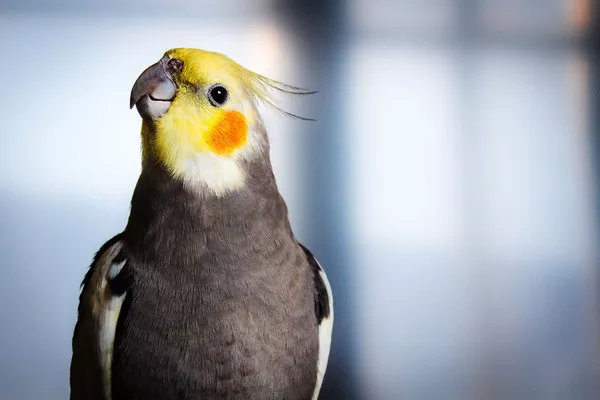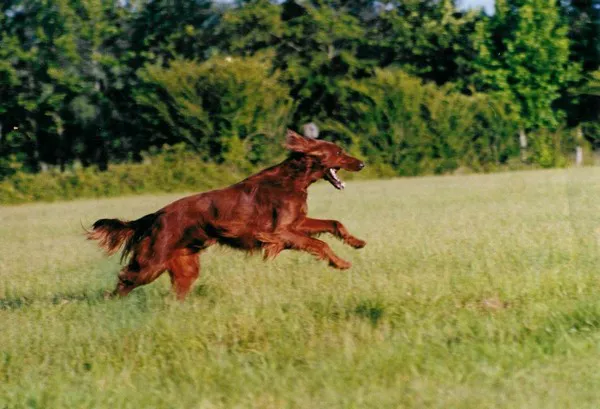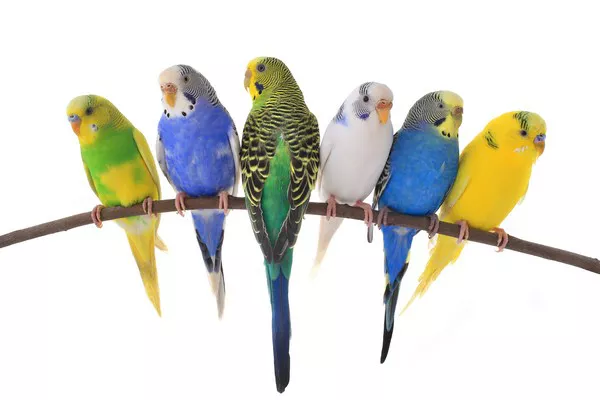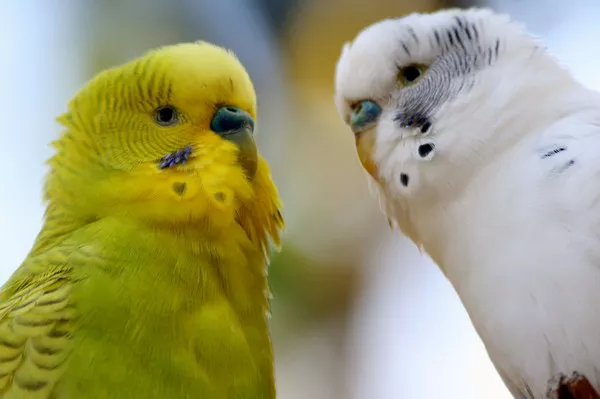Conures are small to medium-sized parrots that belong to the Aratinga and Pyrrhura genera. These birds are known for their vibrant plumage, playful personalities, and affectionate nature. Among the most popular conures are the Sun Conure (Aratinga solstitialis) and the Green Cheek Conure (Pyrrhura molinae). While both of these species are beloved by bird enthusiasts, there are notable differences between the two. Understanding these differences in terms of appearance, temperament, care requirements, and other characteristics is crucial for anyone considering adopting one of these charming birds.
This article will explore the key differences between the Sun Conure and Green Cheek Conure, examining their physical characteristics, behavior, care needs, and suitability as pets.
1. Overview of Conures
Conures are a group of parrot species native to the Americas, particularly found in South and Central America. They are known for their strong social bonds, playful behavior, and vocal nature. Conures come in various colors and sizes, with each species exhibiting its unique traits.
Among the most sought-after species are the Sun Conure and Green Cheek Conure. Both of these birds make wonderful companions, but they differ significantly in their appearance, behavior, and care needs.
2. Sun Conure: Appearance and Characteristics
The Sun Conure is a strikingly beautiful bird that is easily recognizable thanks to its bright, colorful feathers. Here’s an in-depth look at their physical features and characteristics:
Physical Appearance
Size: The Sun Conure is a medium-sized parrot, measuring about 12 to 14 inches (30 to 35 cm) in length.
Coloration: The Sun Conure is one of the most colorful parrot species. Their vibrant plumage is a brilliant blend of yellow, orange, green, and blue. The bright yellow and orange feathers on their body give them a “sunny” appearance, while their wings and tails have hints of green and blue. The bird’s face is typically orange to yellow with darker feathering around the eyes.
Beak: The Sun Conure has a strong, curved beak that is typical of parrots. Their beak is black with a slight curve, ideal for cracking nuts and seeds.
Eyes: Their eyes are dark and expressive, often adding to their charming look.
Behavior and Personality
Affectionate: Sun Conures are known for being affectionate and social. They often bond closely with their owners and can form strong, lasting relationships with them.
Vocalization: While these birds are affectionate, they are also quite loud. Sun Conures are known for their high-pitched, shrill calls that can be heard from quite a distance. Their loud calls can be both a joy and a challenge for pet owners.
Playful: These birds are highly active and enjoy playing with toys, climbing, and interacting with their environment. They need constant stimulation and love being around people.
Diet
The Sun Conure’s diet includes fruits, vegetables, seeds, and pellets. As with all parrots, variety is key to ensuring that the bird gets all the necessary nutrients. Fruits like apples, berries, and bananas are favorite treats.
Life Span
A healthy Sun Conure can live anywhere between 25 to 30 years with proper care. Like many parrots, they are long-lived and require a long-term commitment from their owners.
3. Green Cheek Conure: Appearance and Characteristics
The Green Cheek Conure is another popular species of conure, though it differs significantly from the Sun Conure in both appearance and behavior. Let’s look at the features of the Green Cheek Conure:
Physical Appearance
Size: Green Cheek Conures are smaller than Sun Conures. They typically measure around 9 inches (23 cm) in length, making them more compact and easier to handle for individuals with limited space.
Coloration: The Green Cheek Conure’s plumage is primarily green, with a dark greenish-grayish crown on the head and a maroon or reddish-brown tail. The bird gets its name from the vibrant green feathers around its cheeks. Unlike the Sun Conure, Green Cheek Conures have a much more subdued and earthy color palette, though they still possess a striking beauty.
Beak: Like the Sun Conure, the Green Cheek Conure has a strong, curved black beak, suited for cracking open seeds and nuts.
Eyes: The eyes of the Green Cheek Conure are typically dark and alert, with a more subdued and subtle expression compared to the Sun Conure.
Behavior and Personality
Affectionate and Social: Green Cheek Conures are highly affectionate birds. They form strong bonds with their owners and love being part of family activities. They often seek attention and enjoy cuddling, making them excellent companions for people who want a social bird.
Vocalization: Green Cheek Conures are quieter than Sun Conures. They produce soft, chirping sounds and gentle whistles rather than loud shrieks. While they are not entirely silent, their vocalizations are much less disruptive, making them a great choice for apartment dwellers or people who prefer a quieter bird.
Playful: Green Cheek Conures are also playful and curious. They enjoy exploring their environment and playing with toys. These birds are energetic but can adapt well to smaller spaces compared to larger parrot species.
Diet
Green Cheek Conures have similar dietary needs to Sun Conures. They thrive on a varied diet of fruits, vegetables, pellets, and seeds. However, like all parrots, their diet should be carefully balanced to prevent obesity and malnutrition.
Life Span
Green Cheek Conures typically have a lifespan of 20 to 30 years. With proper care, they can live a long, healthy life, making them a long-term commitment for bird lovers.
4. Differences in Temperament
While both the Sun Conure and Green Cheek Conure are known for their social and affectionate personalities, they differ in how they interact with their owners and their surroundings.
Sun Conures: Sun Conures are highly energetic, vocal, and playful. They love attention and can be demanding of it. If not adequately stimulated, they can develop behavioral issues such as excessive screaming or destructive behavior. Their loud calls can be overwhelming in quieter settings, so potential owners should be prepared for a bird with a strong voice.
Green Cheek Conures: Green Cheek Conures are also affectionate but tend to be quieter and less demanding. They may still seek attention, but their smaller size and quieter nature make them more adaptable to apartment living or situations where noise could be a concern. They are also less likely to develop behavioral issues due to boredom, provided they have enough toys and attention.
5. Care and Maintenance
Caring for both Sun Conures and Green Cheek Conures requires commitment and attention to their needs. Here’s a comparison of the care requirements for each bird:
Cage Size
Sun Conures: Due to their larger size, Sun Conures require a spacious cage to move around comfortably. A cage that is at least 24 inches by 24 inches by 30 inches (61 cm x 61 cm x 76 cm) is ideal for a Sun Conure.
Green Cheek Conures: Green Cheek Conures need less space but still require a cage that allows them to move around and play. A cage that is 18 inches by 18 inches by 24 inches (46 cm x 46 cm x 61 cm) is generally adequate for a Green Cheek Conure.
Exercise and Enrichment
Sun Conures: Sun Conures are highly energetic and need daily exercise outside their cage. Providing them with toys, perches, and climbing structures is essential for their mental and physical health. They should be allowed out of their cage for several hours each day to explore and interact.
Green Cheek Conures: Green Cheek Conures also need daily exercise and mental stimulation. While they are slightly less active than Sun Conures, they still require time outside of their cage to play and explore.
Grooming
Both Sun Conures and Green Cheek Conures require regular grooming to maintain healthy feathers. This includes occasional baths (either through misting or water baths), nail trimming, and beak care. Both species are generally good about self-grooming but still benefit from occasional help from their owners.
6. Health Considerations
Like all parrots, both Sun Conures and Green Cheek Conures are prone to specific health issues that owners should be aware of. These include:
Feather Plucking: Some conures may engage in feather plucking due to boredom, stress, or medical issues.
Obesity: If not monitored, both species can become overweight due to a high-fat diet or lack of exercise.
Respiratory Issues: Conures are sensitive to fumes, smoke, and other air pollutants. Owners should ensure their home is free from harmful chemicals.
Psittacine Beak and Feather Disease (PBFD): This viral disease can affect conures, causing feather loss and beak abnormalities.
Regular vet check-ups are essential to ensure the health and well-being of both Sun Conures and Green Cheek Conures.
7. Which Bird Is Right for You?
When deciding between a Sun Conure and a Green Cheek Conure, it’s essential to consider your lifestyle, living space, and what you are looking for in a pet bird.
Sun Conures: If you’re looking for a loud, energetic, and highly social bird that loves attention and has a striking appearance, the Sun Conure might be the right choice. They thrive in active households where they can be the center of attention.
Green Cheek Conures: If you prefer a smaller, quieter, and more adaptable bird, the Green Cheek Conure might be a better fit. Their playful nature and quieter disposition make them well-suited to people who want a bird that is affectionate but not overwhelmingly loud.
Conclusion
In conclusion, both the Sun Conure and Green Cheek Conure make fantastic pets, but they come with different temperaments and care needs. The Sun Conure is perfect for owners who have the time and patience to care for an active, vocal, and social bird, while the Green Cheek Conure is ideal for those who prefer a smaller, quieter companion.
Ultimately, the decision between a Sun Conure and Green Cheek Conure comes down to your lifestyle and preferences. Both species can make excellent companions, bringing joy and personality to any household.
Related Topics:


